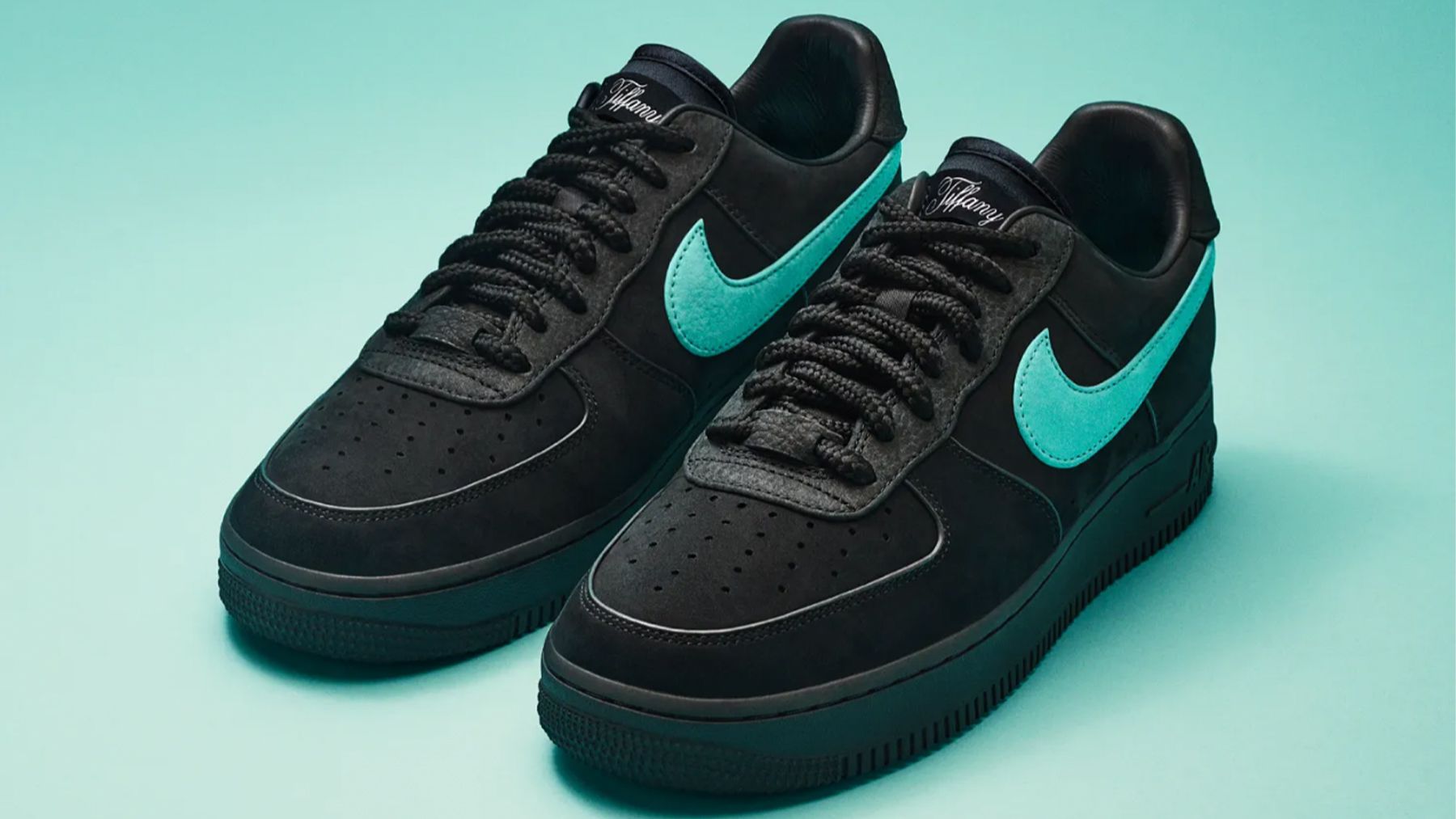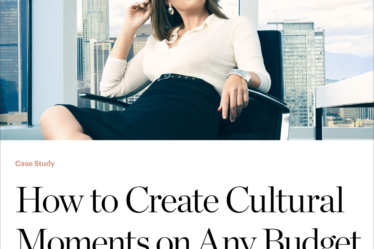
On Sunday, Tiffany & Co. and Nike took out a full-page print ad in The New York Times featuring a Nike shoe box in Tiffany’s signature robin’s-egg blue, tagged with the logos of both brands and the line: “A Legendary Pair.” By Monday morning, images of the sneakers themselves had “leaked” on social media but I struggled to find a single individual who thought the shoes lived up to the “legendary” label touted in the ads.
By Tuesday, that sentiment seemed to dominate the reaction online, where sneakerheads largely dismissed the $400 Nike Air Force 1 Low Tiffany & Co. 1837 shoes, which come in all-black nubuck leather with a Tiffany blue swoosh and silver plate on the back.
“I expected so much more than this. This is a no. Take it back to the studio,” said one top commenter on Tiffany’s Instagram. Others chimed in: “They’re not bad if you don’t look at them,” “Is this a joke,” “Just Don’t Do It,” “You are a luxury brand, this looks so cheap” and “The design team was high for this one.” Over on the pages of youth culture titles Highsnobiety, Hypebeast and on popular archive account @liljupiter, people were even less restrained.
American rapper Reese LaFlare called the whole thing “T R A S H,” going on to state that “Nick Diamonds did it better,” referring to the Diamond & Co. founder who in 2005 collaborated with Nike Skateboarding on what was later dubbed the “Tiffany Dunk.” That sneaker currently fetches over $3,000 on sneaker reseller StockX and remains highly applauded.
By Wednesday night, the internet seemed to have made up its mind: the collaboration was nothing more than a marketing play that lacked substance. The lesson? Cultural credibility cannot be bought. And it certainly can’t be reduced to a tired marketing template.
Tiffany and Nike’s partnership failed on multiple levels.
First, there was no authentic synergy between the two brands, no discernable rationale for the collaboration other than two corporate juggernauts wanting to generate marketing buzz. Unlike the best collaborations, the whole wasn’t greater than the sum of its parts.
Then, there was the execution. While the ads were clever, the product itself was a misfire. To say it lacked imagination would be an understatement. What’s more, the choice of colourway seemed to reflect an executive team unaware of the memes surrounding Nike’s black Air Force 1s, which are widely spoofed as linked to untrustworthy types.
Collaborations with the likes of Supreme, Nike and Daniel Arsham have helped Tiffany’s LVMH stablemates Louis Vuitton and Dior successfully tap into the next generation of shoppers. But key to those successes were creative directors Virgil Abloh and Kim Jones and their fluency with youth culture. With the Tiffany collaboration, it was hard to avoid the feeling that sneakerheads were being taken for a ride. The bottom line: cultural credibility needs to be earned with respect for sneakerheads and their culture, not on their backs.
Ultimately, the marketing heft behind the roll-out will power results. People are certainly talking about the partnership. The shoe will no doubt sell out. And resale prices will surely pop. Tiffany and Nike will walk away the winners of this month’s attention contest — but at what cost to their brands?
Christopher Morency is the chief brand officer of Vanguards and the former editorial director of Highsnobiety.
The views expressed in Op-Ed pieces are those of the author and do not necessarily reflect the views of The Business of Fashion.
How to submit an Op-Ed: The Business of Fashion accepts opinion articles on a wide range of topics. The suggested length is 700-1000 words, but submissions of any length within reason will be considered. All submissions must be original and exclusive to BoF. Submissions may be sent to opinion@businessoffashion.com. Please include ‘Op-Ed’ in the subject line and be sure to substantiate all assertions. Given the volume of submissions we receive, we regret that we are unable to respond in the event that an article is not selected for publication.


